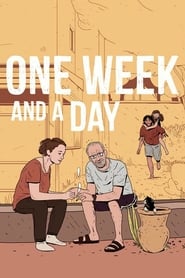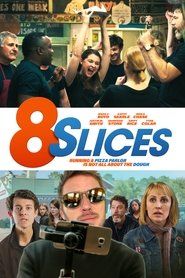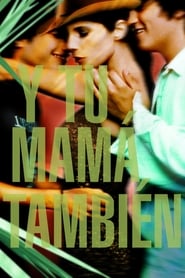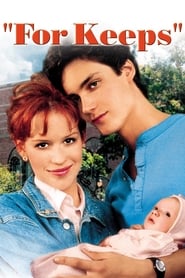
Video Sources 0 Views

Synopsis
Watch: Juventude Em Marcha 2006 123movies, Full Movie Online – After the Portuguese government demolishes his slum and relocates him to a housing project on the outskirts of Lisbon, 75-year-old Cape Verde immigrant Ventura wanders between his new and old homes, reconnecting with people from his past. (from Wikipedia).
Plot: After the Portuguese government demolishes his slum and relocates him to a housing project on the outskirts of Lisbon, 75-year-old Cape Verde immigrant Ventura wanders between his new and old homes, reconnecting with people from his past.
Smart Tags: #urban_setting #post_colonialism #non_professional_cast #husband_wife_relationship #family_relationships #drug_addict #methadone #watching_tv #housing_development #slum #ghetto #squatter #poverty #african #immigrant #cape_verde #fontainhas_lisbon #lisbon_portugal #third_in_trilogy #part_of_trilogy
Find Alternative – Juventude Em Marcha 2006, Streaming Links:
123movies | FMmovies | Putlocker | GoMovies | SolarMovie | Soap2day
Ratings:
Reviews:
Sketches for a cinema of exhaustion
This filmmaker is Portuguese and has been chronicling the Cape Verdean immigrant population of Lisbon for some time. The Portuguese title means “Youth on the March;” it’s not clear where the “Colossal” comes from in the English title, “Colossal Youth.” In either case the phrases are presumably ironic. Nobody is going anywhere. Using cinema vérité methods, Costa focuses on Ventura, a tall, lean sixty-something Cape Verdean man living in Lisbon whose wife leaves his cave-like second-story slum dwelling, tossing out the window and thereby destroying a lot of the furniture before doing so. Ventura subsequently appears to wander around acting as “a genial but vacant guide” to a series of people he refers to as “children” or “son” or daughter” and who engage in “impossibly long-winded monologues” in “uniformly grimy, unlit interiors” (except for a couple of bright white ones in the new housing project that has since replaced the slum; these quotations are from Justin Chang’s review in Variety written after the film’s Cannes Festival screening). Occasionally Ventura, who refers to himself as a “retired laborer,” recalls building projects he worked on when he first came to Lisbon and a fall he suffered during one of them, but he does not offer much commentary or advice to his younger interlocutors.The visuals are mostly gray, with patches of color that sing out in contrast. Ventura plays cards; look as at a new apartment in the project; listens there to Vanda (Vanda Duarte, subject of an earlier Costa film) talking about her painful childbirth experience,and later with her child; plays cards or eat with “sons;” and visits the national museum where another “son” is a guard.
Costa offers less to viewers (and conversely perhaps gives them more to do) than almost any filmmaker presenting lives and people. Hence, in part paradoxically, he has a “coterie of fans” whom this new film will keep in “rapt attention”– while doubtless “proving a colossal bore to anyone else” (Justin Chang again). Costa is a minimalist, and in minimal art, less is more; with success, the principle of the “tremendous trifle” will apply. Elements that elsewhere would go unnoticed will become significant or beautiful. The online cinephile writer Aquerello (Strictly Film School) believes this to be true of Colossal Youth and says of Ventura that his “lean and angular physicality cuts a dark and sinuous figure as majestic and transfixing as the works of art that frame him” in the museum. Aquerello further comments on the film’s most studied element, in which an injured laborer asks Ventura to write a letter home to his girlfriend –a letter, Aquerello speculates, that also subsequently “becomes an expression of the wan protagonist’s own sense of abandonment since his wife has left him.” Aquerello calls the repetition of the letter’s phrases in the film an “incantation.” This, he thinks, typifies “the transfiguration of the corporeal into the ethereal through mundane ritual” of the film’s “awkward composition, disarming humility, and poetic ineloquence.”
In its most elaborated form the letter Aquerello refers to goes like this:
“My love, being together again will brighten our lives for at least 30 years. I’ll come back to you strong and loving. I wish I could offer you 100,000 cigarettes, a dozen fancy dresses, a car, the little lava house you always dreamed of, a threepenny bouquet. But most of all, drink a bottle of good wine and think of me. Here, it’s nothing but work. There are over a hundred of us now. Did my letter arrive safely? Still nothing from you. Some other time. Every day, every minute, I learn beautiful new words for me and you alone made to fit us both, like fine silk pajamas, wouldn’t you like that? I can only send you one letter a month. I often get scared building these walls. Me with a pick and cement, you with your silence, a pit so deep, it swallows you up. It hurts to see these horrors that I don’t want to see. Your lovely hair slips through my fingers like dry grass. Often, I feel week and think I’m going to forget you.”
The overwhelming impression of Ventura is of fatigue, and one of my points of reference from literature for Costa’s film-making as exhibited in “Colossal Youth” is the novels and to a lesser extent the plays of Samuel Beckett. “I can’t go on. I’ll go on,” is a famous Beckett conclusion. Beckett’s Irish gift for the music of language served him so well that he deliberately switched to French to limit himself, though in his own English translations of the results, especially the plays, the poetry still sings in the mud and ruins of his devastated dead-end characters’ lives.
Beckett works entirely with the ear- and mind-stimulating power of words. However impoverished the vocabulary, in the hands of a master words can work magic. That may happen intermittently with the images and sound in Costa’s film. What lasts, though, is a sense of the hopelessness of urban immigrant poverty.
Review By: Chris Knipp Rating: 8 Date: 2007-04-29
Sketches for a cinema of exhaustion
This filmmaker is Portuguese and has been chronicling the Cape Verdean immigrant population of Lisbon for some time. The Portuguese title means “Youth on the March;” it’s not clear where the “Colossal” comes from in the English title, “Colossal Youth.” In either case the phrases are presumably ironic. Nobody is going anywhere. Using cinema vérité methods, Costa focuses on Ventura, a tall, lean sixty-something Cape Verdean man living in Lisbon whose wife leaves his cave-like second-story slum dwelling, tossing out the window and thereby destroying a lot of the furniture before doing so. Ventura subsequently appears to wander around acting as “a genial but vacant guide” to a series of people he refers to as “children” or “son” or daughter” and who engage in “impossibly long-winded monologues” in “uniformly grimy, unlit interiors” (except for a couple of bright white ones in the new housing project that has since replaced the slum; these quotations are from Justin Chang’s review in Variety written after the film’s Cannes Festival screening). Occasionally Ventura, who refers to himself as a “retired laborer,” recalls building projects he worked on when he first came to Lisbon and a fall he suffered during one of them, but he does not offer much commentary or advice to his younger interlocutors.The visuals are mostly gray, with patches of color that sing out in contrast. Ventura plays cards; look as at a new apartment in the project; listens there to Vanda (Vanda Duarte, subject of an earlier Costa film) talking about her painful childbirth experience,and later with her child; plays cards or eat with “sons;” and visits the national museum where another “son” is a guard.
Costa offers less to viewers (and conversely perhaps gives them more to do) than almost any filmmaker presenting lives and people. Hence, in part paradoxically, he has a “coterie of fans” whom this new film will keep in “rapt attention”– while doubtless “proving a colossal bore to anyone else” (Justin Chang again). Costa is a minimalist, and in minimal art, less is more; with success, the principle of the “tremendous trifle” will apply. Elements that elsewhere would go unnoticed will become significant or beautiful. The online cinephile writer Aquerello (Strictly Film School) believes this to be true of Colossal Youth and says of Ventura that his “lean and angular physicality cuts a dark and sinuous figure as majestic and transfixing as the works of art that frame him” in the museum. Aquerello further comments on the film’s most studied element, in which an injured laborer asks Ventura to write a letter home to his girlfriend –a letter, Aquerello speculates, that also subsequently “becomes an expression of the wan protagonist’s own sense of abandonment since his wife has left him.” Aquerello calls the repetition of the letter’s phrases in the film an “incantation.” This, he thinks, typifies “the transfiguration of the corporeal into the ethereal through mundane ritual” of the film’s “awkward composition, disarming humility, and poetic ineloquence.”
In its most elaborated form the letter Aquerello refers to goes like this:
“My love, being together again will brighten our lives for at least 30 years. I’ll come back to you strong and loving. I wish I could offer you 100,000 cigarettes, a dozen fancy dresses, a car, the little lava house you always dreamed of, a threepenny bouquet. But most of all, drink a bottle of good wine and think of me. Here, it’s nothing but work. There are over a hundred of us now. Did my letter arrive safely? Still nothing from you. Some other time. Every day, every minute, I learn beautiful new words for me and you alone made to fit us both, like fine silk pajamas, wouldn’t you like that? I can only send you one letter a month. I often get scared building these walls. Me with a pick and cement, you with your silence, a pit so deep, it swallows you up. It hurts to see these horrors that I don’t want to see. Your lovely hair slips through my fingers like dry grass. Often, I feel week and think I’m going to forget you.”
The overwhelming impression of Ventura is of fatigue, and one of my points of reference from literature for Costa’s film-making as exhibited in “Colossal Youth” is the novels and to a lesser extent the plays of Samuel Beckett. “I can’t go on. I’ll go on,” is a famous Beckett conclusion. Beckett’s Irish gift for the music of language served him so well that he deliberately switched to French to limit himself, though in his own English translations of the results, especially the plays, the poetry still sings in the mud and ruins of his devastated dead-end characters’ lives.
Beckett works entirely with the ear- and mind-stimulating power of words. However impoverished the vocabulary, in the hands of a master words can work magic. That may happen intermittently with the images and sound in Costa’s film. What lasts, though, is a sense of the hopelessness of urban immigrant poverty.
Review By: Chris Knipp Rating: 8 Date: 2007-04-29
Other Information:
Original Title Juventude Em Marcha
Release Date 2006-05-26
Release Year 2006
Original Language pt
Runtime 2 hr 36 min (156 min)
Budget 0
Revenue 0
Status Released
Rated Not Rated
Genre Drama
Director Pedro Costa
Writer Pedro Costa
Actors Ventura, Vanda Duarte, Beatriz Duarte
Country Portugal, France, Switzerland
Awards 2 wins & 7 nominations
Production Company N/A
Website N/A
Technical Information:
Sound Mix Mono
Aspect Ratio 1.33 : 1
Camera Panasonic AG-DVX100
Laboratory N/A
Film Length 4,369 m (Portugal, 35 mm)
Negative Format Mini DV
Cinematographic Process Digital
Printed Film Format 35 mm
Original title Juventude Em Marcha
TMDb Rating 7.2 38 votes
















